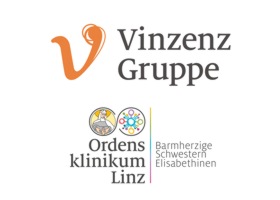Geinitz, Hans, Silberberger, Elisabeth, Spiegl, Kurt, Feichtinger, Johann, Wagner, Helga, Hermann, Philipp, Bräutigam, Elisabeth, Track, Christine, Weis, Eva Maria, Venhoda, Clemens, Huppert, Roswitha, Spindelbalker-Renner, Barbara, Zauner-Babor, Georgine, Nyiri, Dalma Viktoria, Karasek, Nicola, Erdei, Mercedesz, Gheju, Ruben, Gruber, Georg, Egger, Margot und Dieplinger, Benjamin
(2024)
SARS-CoV-2 vaccination willingness and humoral vaccination response in radiation oncology patients.
Vaccine, 42 (4).
pp. 945-959.
ISSN 1873-2518
Für diesen Eintrag wurde kein Volltext-Dokument angefügt.
Kurzfassung
BACKGROUND
SARS-CoV-2 infection has been and, in some parts, still is a threat to oncologic patients, making it crucial to understand perception of vaccination and immunologic responses in this vulnerable patient segment. SARS-CoV-2 vaccines in relation to malignant disease characteristics and therapies have so far not been studied consecutively in larger oncologic patient populations. This study captures SARS-CoV-2 vaccination willingness and humoral immune response in a large consecutive oncologic patient collective at the beginning of 2021.
METHODS
1142 patients were consecutively recruited over 5.5 months at a tertiary department for radiation oncology and were assessed for vaccination willingness via a standardized interview. In already vaccinated patients total SARS-CoV-2 S antibody titres against the spike protein (Anti-SARS-CoV-2 S) and were evaluated 35 days or later after the first dose of SARS-CoV-2 vaccine.
RESULTS
Vaccination willingness was high with a rate of 90 %. The most frequent reasons for rejection were: undecided/potential vaccination after therapy, distrust in the vaccine and fear of interaction with comorbidities. Factors associated with lower vaccination willingness were: worse general condition, lower age and female sex. 80 % of the participants had been previously vaccinated, 8 % reported previous infection and 16 % received vaccination during antineoplastic therapy. In 97.5 % of the vaccinated patients Anti-SARS-CoV-2 S was detected. In a univariable analysis parameters associated with non-conversion were: lower performance status, spread to the local lymphatics (N + ), hematologic disease and diffuse metastases. All patients with oligometastatic disease achieved positive Anti-SARS-CoV-2 S titres. For patients with two vaccinations several risk factors were identified, that were associated with low antibody concentrations.
CONCLUSIONS
SARS-CoV-2 vaccination willingness among oncologic patients was high in the first months after its availability, and most patients had already received one or two doses. Over 97 % of vaccinated patients had measurable anti-SARS-CoV-2 S titres. Our data supports early identification of low humoral responders after vaccination and could facilitate the design of future oncologic vaccine trials (clinicaltrials.gov Identifier: NCT04918888).
Actions (login required)

- Eintrag anzeigen


 Tools
Tools Tools
Tools